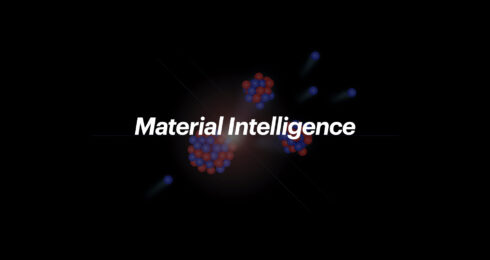Alannah Hallas (pictured) has a seat in one of the most exclusive rooms in quantum physics for the next two years, thanks to the support of a CIFAR Azrieli Global Scholars award. Hallas, who began her role as Assistant Professor in the Department of Physics and Astronomy in UBC’s Faculty of Science and established the Quantum Materials Design Lab at the Stewart Blusson Quantum Matter Institute (SBQMI) just over a year ago, will join a Canadian and international cohort of leaders in CIFAR’s Quantum Materials program.
,
CIFAR’s Global Scholars award, offered to exceptional researchers who are within the first five years of their academic appointment, provides unrestricted start-up funds, access to a global network of interdisciplinary scholars, and opportunities for mentorship and training. For Hallas, this award will connect her with other experts in quantum fields, enabling her to establish a community of potential collaborators that she will carry with her throughout her career.
,
Hallas credits a CIFAR summer school program she attended during graduate school for helping establish her research direction.
,
“As a graduate student working in chemistry, I had the opportunity to attend the 2013 summer school and meeting, which is where I first met my future PhD advisors and where I was first inspired to delve more deeply into physics,” said Hallas. “CIFAR has played a huge role in my career path to date, and I am proud to be a CIFAR Azrieli Global Scholar in 2020.”
,
Hallas is a “crystal grower” and solid-state chemist who is creating materials that don’t exist in the natural world, combining elements and conditions that may not organically align in nature to produce new quantum materials. These quantum materials have properties that are derived from intense quantum mechanical effects. In order to understand the quantum properties of these materials, Hallas seeks collaborations across the spectrum of experimental and theoretical physics and chemistry.
,
“We are making quantum materials to search for new phenomena: properties that we didn’t even know materials could have,” she explains. “Our research falls into the category of fundamental science; we want to understand how the elements in these materials interact to produce their quantum magnetic and electronic properties. But the potential applications of quantum materials go far beyond fundamental science.”
,
Hallas and her team work to design concepts for new materials, then head into the lab to make them through a process known as crystal growth. Crystal growth occurs when different elements from the periodic table are combined and heated, sometimes with the addition of pressure, in order to instigate a chemical reaction and form a novel compound. How the electrons in a material will behave in a given compound are dependent on its ingredients and technique; carbon can become graphite or diamond, for example, depending on how it’s treated.
,
Once Hallas and colleagues have a material, they will work with theorists to develop a mathematical model for how the material will behave, before taking it back to the lab to refine and inform future, even better models with stronger quantum properties.
,
“My group at UBC is developing some incredibly powerful tools for crystal growth, and to be able to bring that expertise into the room where so many breakthroughs have been made and so many collaborations have been established is a huge opportunity,” said Hallas.
,
“The new materials my group is synthesizing will catalyze collaborations and open new research directions within the CIFAR Quantum Materials program,” said Hallas. “The CIFAR Quantum Materials meetings, which occur twice per year, are often where discoveries are initially shared with the community, and I am excited to be part of and contribute to this incredible program.”
,
CIFAR is a Canadian-based global research organization that convenes extraordinary minds to address the most important questions facing science and humanity. Read more: Meet the 2020-2022 cohort of CIFAR Azrieli Global Scholars.


